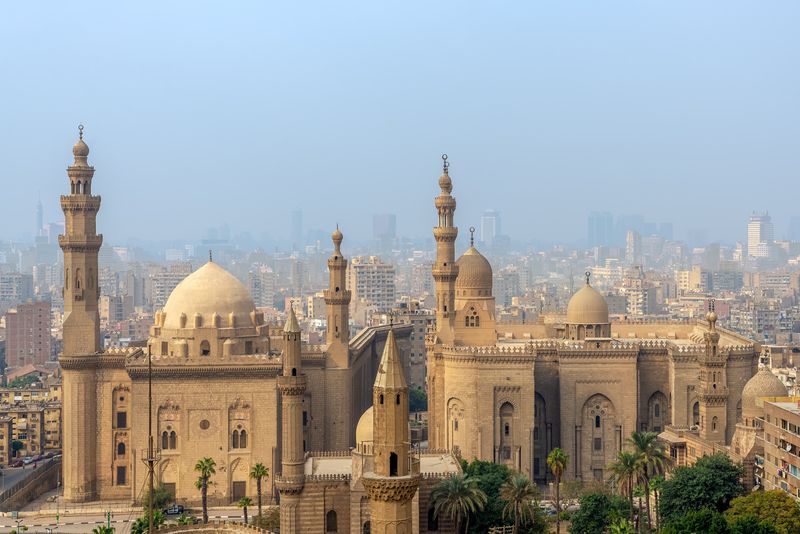
Egypt‘s finance minister Ahmed Kouchouk has confirmed that the sovereign plans to return to the Panda and Samurai markets in the current fiscal year to access scale and cost-effective financing as part of a broader diversification strategy.
“Timing, size, structure, and potential ESG labelling are being carefully considered to optimise the impact and success of the [Panda] transaction,” Kouchouk told IFR in an email.
As part of the efforts to raise funds in yen and onshore renminbi, Egypt is working to “strengthen its relationship with Japanese and Chinese investors and to establish a new yield curve benchmark, which could also support other issuers seeking access to the Asian market,” he wrote.
Egypt priced its debut and only Panda to date in October 2023, raising Rmb3.5bn (then US$480m) from the deal, which was guaranteed by the African Development Bank and the Asian Infrastructure Investment Bank and issued under a sustainable finance framework.
The country’s central bank received the proceeds in renminbi and provided the local currency equivalent to the ministry of finance, Kouchouk explained.
Remitting proceeds from onshore renminbi bonds requires approval from Chinese regulators, one of the restrictions that makes Panda bonds accessible to a select group of nations – usually those with good bilateral relations with China.
“What truly enabled Egypt’s access to the onshore renminbi market was the strong alignment and support across government institutions, reflecting a shared commitment to embracing innovative financing tools,” Kouchouk said.
The successful execution of this deal “laid a solid foundation for future access to the renminbi market”, he added.
Meanwhile, Egypt has privately placed two Samurai deals – the first in March 2022 when it raised ¥60bn (then US$496m) in what was the first issue by an African country in the Japanese market, and more recently in November 2023, when it raised ¥75bn from 1.5% five-year bonds. Both are guaranteed by Sumitomo Mitsui Banking Corp.
The ministry has received proposals from banks and credit guarantee agencies regarding the Panda and Samurai deals and is in the process of “assessing the optimal structure” for the transactions while closely monitoring both markets, the minister said.
Domestically, Egypt is moving forward with preparations for a local currency sovereign sukuk to complement its four outstanding international sukuk tranches.
“Egypt remains open to exploring other offshore currencies that offer favourable funding conditions and support our diversification strategy,” the minister said.
The sovereign has also previously tapped the euro bond market.
Progress on reform
In total, Egypt has US$11bn of external financing needs for the fiscal year ending June 2026, including concessional financing that has already been secured. This includes an US$8bn International Monetary Fund loan programme approved in March 2024 for which a fifth and sixth review have been combined. The minister said he expects the review to be completed this month.
The last US$1.2bn disbursement under Egypt’s fourth review was approved in March, bringing the total received under the programme so far to around US$3.2bn.
Egypt is also a recipient of loans and investments from the EU, World Bank and Gulf states.
From the international bond market, Egypt is looking to raise around US$4bn to match maturing foreign debt, all while maintaining a “prudent” redemption-to-issuance ratio, the minister said.
The strategy is to gradually reduce external debt levels and lower the overall debt burden over time, he said.
As part of its external financing plan, on September 30 Egypt priced a US$1.5bn two-tranche sukuk deal comprising a US$700m 6.375% April 2029 and US$800m 7.95% October 2032.
This followed a conventional US$2bn dual-tranche bond in January comprising US$1.25bn of February 2030 notes priced at 8.625% and US$750m of February 2033 notes priced at 9.45%.
“US dollar investors are drawn to Egypt due to its relatively high yields, improving reform momentum, and strong support from international institutions,” Kouchouk said.
Continued reforms, macroeconomic stability and stronger investor relationships, as well as lower global rates and a higher credit rating could support tighter pricing in the future, he said.
Egypt is rated Caa1/B/B, after an upgrade by S&P on October 10.
Kouchouk said the ministry is “constantly” in discussions with the ratings agencies to highlight its reforms and the improved economic outlook with a view to raising its international ratings.
The World Bank this month raised its growth outlook for Egypt for the 2024–2025 financial year to 4.5%, from 3.8% earlier, which compares with a 2.4% growth rate in the previous financial year. The World Bank cited exchange rate liberalisation, public investment caps and subsidy reform, as well as stronger exports and consumption.
The ministry is also vying for re-inclusion in JP Morgan’s Emerging Markets Government Bond Index, after being dropped in early 2024 due to foreign exchange convertibility restrictions.
Egypt has made progress towards this by improving fiscal and monetary policy discipline, increasing the depth and liquidity of the local debt market, and raising its share of longer-term issuance, the minister said.
Additionally, it has been working to upgrade its clearing and settlement systems (Egypt signed an agreement with Euroclear in 2019), improve market transparency, adopt a flexible exchange rate regime and facilitate fund repatriation, the minister said.
“We are confident that the progress made so far, combined with our unwavering commitment to completing the reform agenda, positions Egypt well to achieve this goal in the near term,” Kouchouk said.






